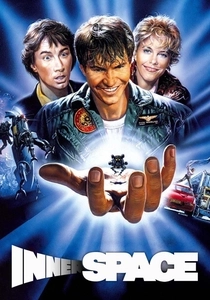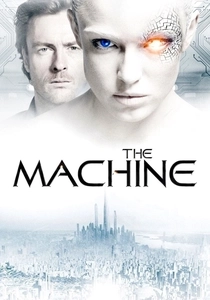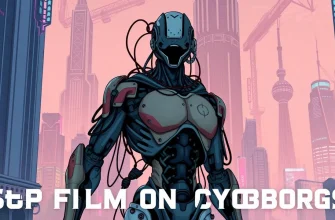Dive into the world of futuristic medicine with this curated list of 10 science fiction films that explore the concept of nanorobots in healthcare. These movies not only entertain but also offer a glimpse into potential medical advancements, sparking curiosity about the intersection of technology and biology. Whether you're a fan of speculative fiction or just intrigued by the possibilities of nanotech, this collection promises to captivate and inspire.

Innerspace (1987)
Description: A test pilot is accidentally shrunk and injected into a hypochondriac, leading to a comedic adventure inside the human body, highlighting the potential of nanotech in medical applications.
Fact: The film won an Academy Award for Best Visual Effects, showcasing the innovative special effects of the time.
 Watch Now
Watch Now 
The Matrix (1999)
Description: While not explicitly about nanorobots, the concept of machines controlling human bodies through a simulated reality touches on the idea of nanotechnology in medicine and control.
Fact: The film's innovative "bullet time" effect revolutionized visual effects in cinema.
 Watch Now
Watch Now 
Fantastic Voyage (1966)
Description: A team of scientists is miniaturized and injected into a scientist's body to repair a blood clot in his brain, showcasing an early cinematic exploration of nanoscale medical intervention.
Fact: The film was nominated for five Academy Awards, including Best Visual Effects, and its concept inspired numerous future works in science fiction.
 Watch Now
Watch Now 
The Island (2005)
Description: Clones are kept in a facility for organ harvesting, with nanobots used to monitor and control their health, showcasing a dystopian use of nanotechnology in medicine.
Fact: The film was inspired by the 1979 film "Parts: The Clonus Horror."
 Watch Now
Watch Now 
The Day the Earth Stood Still (2008)
Description: Although not primarily about nanorobots, the film features alien technology that can manipulate matter at the nanoscale, including healing and altering human bodies.
Fact: The film is a remake of the 1951 classic, with Keanu Reeves playing the alien visitor.
 Watch Now
Watch Now 
Repo Men (2010)
Description: In a world where artificial organs are repossessed if payments are missed, nanobots are used to maintain these organs, exploring the ethical implications of medical technology.
Fact: The film features a dark, satirical take on the healthcare industry.
 Watch Now
Watch Now 
Elysium (2013)
Description: In a future where the wealthy live on a space station, nanotech is used for medical treatments, highlighting the disparity in healthcare access.
Fact: The film's director, Neill Blomkamp, is known for his socially conscious sci-fi narratives.
 Watch Now
Watch Now 
Transcendence (2014)
Description: In this film, a terminally ill scientist uploads his mind into a computer, leading to the creation of nanobots that can heal and enhance human capabilities, raising ethical questions about AI and nanotechnology in medicine.
Fact: Johnny Depp's character, Dr. Will Caster, was inspired by real-life scientists like Ray Kurzweil, known for his work in AI and nanotechnology.
 Watch Now
Watch Now 
The Machine (2013)
Description: A scientist creates an AI with the ability to heal and enhance human bodies through nanotechnology, delving into themes of consciousness and medical ethics.
Fact: The film explores the concept of artificial intelligence and its potential in medical applications, with a focus on the human element.
 Watch Now
Watch Now 
Upgrade (2018)
Description: After a paralyzing accident, a man receives a spinal implant that enhances his body, including nanobots that repair and augment his physical abilities.
Fact: The film was praised for its practical effects and its blend of cyberpunk and body horror.
 Watch Now
Watch Now 








